#Prince Ernst August
Explore tagged Tumblr posts
Text
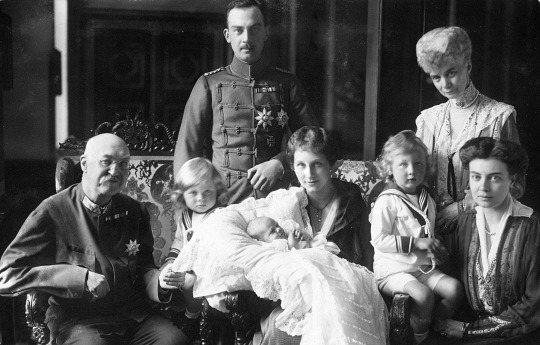
Crown Prince Ernst August, Duke of Cumberland; Prince Georg Wilhelm of Hanover, Ernst August, Duke of Braunschweig and his wife, Princess Victoria Luise of Prussia holding baby Princess Friederike (later Queen of Greece); Prince Ernst August of Hanover; Crown Princess Thyra, Duchess of Cumberland and Princess Olga of Hanover. ❦
#prince ernst august#Princess Victoria Louise#Prince Georg Wilhelm of Hanover#crown Princess thyra of Hanover#crown Prince Ernst August of Hanover#Princess Olga of Hanover#history#royal#royalty#prussia#germany#Hanover#queen frederica
3 notes
·
View notes
Text



Every Prussian monarch, the children of Wilhelm II and Ernst August.
#kaiserreich#frederick william iii#Frederick I#frederick William I#frederick ii#FrederickWilliamII#Frederick William IV#WilhelmI#FrederickIII#wilhelm ii#prince wilhelm#Eitel Friedrich#Adalbert#Oskar#Joachim#Auwi#August Wilhelm#Viktoria Luise#Ernst August#history#art#this took forever
33 notes
·
View notes
Text

Prince Maximilian Alexander Friedrich Wilhelm, Margrave of Baden with his children Princess Marie Alexandra Thyra Victoria Louise Carola Hilda of Baden and Prince Berthold Friedrich Wilhelm Ernst August Heinrich Karl of Baden
German vintage postcard
#Wilhelm#Margrave#Ernst#Alexandra#sepia#Hilda#Marie#historic#Baden#Alexander#Carola#Heinrich#ansichtskarte#German#briefkaart#Prince#vintage#carte postale#children#August#with#Thyra#Victoria#Berthold#Friedrich#postcard#postkaart#tarjeta#photography#Princess
9 notes
·
View notes
Text

3 notes
·
View notes
Note
Carmilla is not original conflicted vampire in literature. Varney the Vampire was conflicted vampire in 1840s already. He even committed suicide by throwing himself into Mount Vesuvius to end it all. Many of today's standard vampire tropes also originated in Varney: Varney has fangs, leaves two puncture wounds on the necks of his victims, comes through a window to attack a sleeping maiden, has hypnotic powers, and has superhuman strength.
Carmilla was influenced and inspired by Varney. All other multi-dimensional vampires or takes on vampires exist also thanks to Varney.
I admit that you got me there, BUT Carmilla does have something that Varney does not have which is pure unfiltered inmortal teenage angst. And yeah! It's really interesting to see how all of the tropes about vampires that we have today sort of pile from every single vampire related piece of literature that has one. It's almost like a collaborative work that spawned from centuries ago that is still going to this day to build what literature calls classic vampire stories.
Let's see what we can trace from the beginning until we run into Carmilla:
The creature Strigói from romanian mythology, linked to vampirism thanks to characteristics like: Not eating garlic and onions, avoiding incense, and how towards the feast of Saint Andrew they sleep outdoors. It has been around Romania for a long time, and it's most early mentions was the story of Jure Grando Alilović who lived from 1579 to 1656. He is possibly the first person to be described as a vampire, or in the correct language a strigói.
The vampire from Der Vampir by Heinrich August Ossenfelder, a poem published in 1748. It references the vampire outside the figure of the Strigoi.
The bride from The Bride of Corinth by Johann Wolfgang Von Goethe, a german poem published in 1797. Starring a female figure as the vampire.
Geraldine from the unfinished two part narrative ballad Christabel by Samuel Taylor Coleridge, published in 1816. She has vampiric like qualities, and a "terrible but undefined" mark on her chest.
The infamous lord Ruthven, from the Vampyre which was published in 1819 by John William Polidori. The first cohesive story about vampirism entails.
Anthony Gibbons, and the Prince from The Black Vampyre: A Legend of St. Domingo by Uriah Derick D’Arcy, also published in 1819. Introduces the literary concept of the dhampir, and the first story to feature black vampires.
Vampirismus or Aurelia by ET Hoffman, published in 1820. The narrative focuses on the rise and downfall of Aurelia after transforming into a ghoul who has vampire like qualities.
Brunhilda from Laßt die Todten ruhen by Ernst Raupach, published in 1823. It features the reanimation, and transformation of a person into a vampire, along with the consequences that it brings.
Alinska from La Vampire by Etienne-Léon de Lamothe-Langon, published in 1825. It shows the rather tragic transformation of a vampire via suicide.
Lady Clarimonde from La Morte Amoureuse, published in 1836 by Théophile Gautier. Establishing the trope of the female vampire as a figure of seduction.
The mysterious Stranger from Der Fremde by Karl Von Wachsman, published in 1844. features the use of vampiric powers like turning into fog to enter the chambers of their victim, and wolf control.
The titular Varney the Vampire by James Malcolm Rymer and Thomas Peckett Prest, published around 1845 to 1847. Another instance of the vampire being presented as a victim of its nature, and a more complex character work.
Carmilla Karnstein (She's here! ♥️) from Carmilla by Sheridan Le Fanu, published in 1872. Introduces the prototype literary trope of the lesbian vampire.
The Gorcha family from The Family of the Vourdalak by Aleksey Konstantinovich Tolstoy, published in 1884. It plays with the concept of vampires transforming their loved ones into vampires.
Count Dracula and the Weird Sisters from Dracula by Bram Stoker, published in 1897. Establishes the modern tropes, look, and notions of the vampire in popular culture.
Wow... those are lots of vampires!
Edit: Christabel, Aurelia, and Alinska added thanks to the important note of @wiliecoyotegenius!
#Carmilla would probably find all of them pretty lame except for Clarimonde#A bunch of extremely succint adult vampires with one (1) moody teenage vampire girl who will call them ugly old people to their faces#Also the most interesting modern modern vampire I have seen is Claudia from Interview with the Vampire clips of 2024#And that book is from 1976#re: carmilla#carmilla#vampires#literature
28 notes
·
View notes
Text




Happy 68th birthday to Princess Caroline of Monaco!
Born on January 23rd 1957, Caroline Louise Marguerite is the eldest child of Prince Rainier Ill of Monaco and Grace Kelly.
She's a princess of Monaco by birth, and the Princess of Hanover by marriage to Prince Ernst August.
Caroline has four children; Andrea Casiraghi (40), Charlotte Casiraghi (38) and Pierre Casiraghi (37) - children of her second husband Stefano Casiraghi - and Princess Alexandra of Hanover (25) - from her third marriage to Prince Ernst August.
14 notes
·
View notes
Text
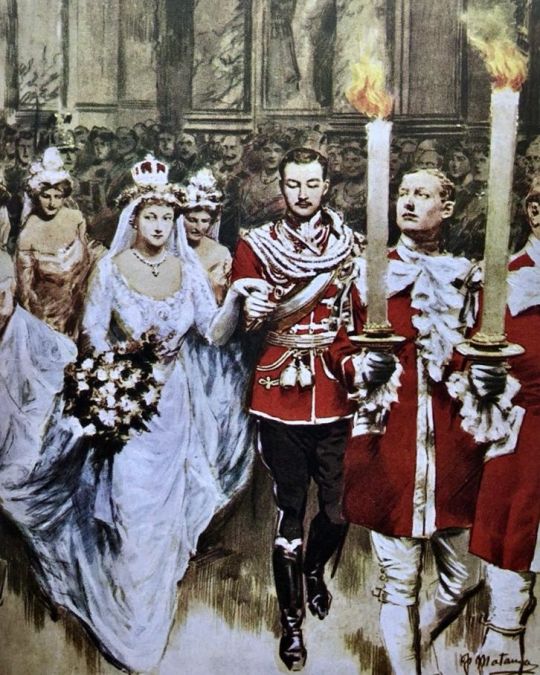
The 20th of May was my last day in the New Palace, and on the 21st Ernst August arrived. In his last letter he had told me what arrangements he had made to keep our honeymoon location secret from prying eyes. It was planned that we should go first to the hunting lodge at Werbellinsee, then to the Hubertihaus, my father-in-law’s hunting lodge near Gmunden. He made me promise not to tell anyone at all and even in Gmunden itself our plans were kept strictly secret.
The first wedding guests to arrive were the King and Queen of England, and my parents went to the Lehrter Station in Berlin to greet them. George V had put on his Prussian General’s uniform for the occasion and, with an escort of Dragoon Guards and Cuirassiers, the Royal couple drove through Berlin. More than half a century was to pass before an English Head of State was to come to Germany again, when Queen Elizabeth II, George V’s grand-daughter, came in 1965.
Early on the following day my great-aunt Luise, Prince Max of Baden and his wife arrived, then a little later my parents-in-law and my sister-in-law, Olga. The First Guards Regiment of Foot formed the guard of honour, while the Cuirassiers again provided the escort as we travelled to the castle in three carriages. My father sat with the Duke, who wore his Austrian uniform, in the first carriage; my mother with the Duchess Thyra in the next, while Princess Olga, my fiancé and I sat together in the third.
At midday the Czar of Russia arrived and the colourful welcoming ceremonies began all over again. Wearing the uniform of the Alexander Grenadier Guards Regiment and the tall Frederick the Great cap on his head, Nicholas II’s truly imposing appearance drove the waiting Berliners into a frenzy of excitement and wonder... For me, the wedding celebrations began with the reception of deputations who had come bringing gifts. My father’s present to me was a diadem and a pearl necklace, while my mother gave me a diamond tiara. King George and Queen Mary gave me a prodigious gold goblet anda diamond brooch; Ernst August a complete jewellery outfit. The English Queen Mother, Alexandra, gave me an emerald brooch. From the Czar I received an aquamarine and diamond necklace; the Italian King and Queen sent me antique silver vessels and Queen Wilhelmina of Holland an antique pendulum clock. There were presents galore, from the Kings of Denmark and Sweden down to the various cities in Germany, and from Brunswick I received a diadem which had once belonged to the French Empress Josephine. The number of gifts was so great they required several furniture vans to carry them.
The real celebrations began on the evening of the day before the wedding, with a gala opera when the Royal Court Opera put on Richard Wagner’s Lohengrin. The Opera House, when I arrived, was bedecked with my favourite flowers, pink carnations, and as we took our places in the Royal Box with our parents, all those present rose from their seats, and Ernst August and I bowed right, left and centre. As one, the entire audience bowed back. Next day, 24 May, was my wedding day. Early in the afternoon my mother helped me on with my bridal crown and veil. Then we repaired to the Chinese Room, and we found that a unit of soldiers had formed lines throughout the castle and taken up sentry posts everywhere. There was a bodyguard from the rst Guards Regiment, the Castle Guard in their historic Frederick the Great uniforms, the Garde du Corps in ceremonial dress, and the gendarmerie. At 4 p.m. members of the staff of the Royal Privy Purse came by, carrying the bridal crown of the Princess of Prussia. Then the Mistress of the Empress’s Household, Therese, Countess von Brockdorff, picked up the crown and ceremoniously handed it to my mother who carefully placed it on my head. We then proceeded to the chamber deemed the ‘Elector’s Room’ where my father received us, and Count Eulenberg, the Minister for the Royal House, completed the formalities regarding the marriage pact and the official registration of the marriage. As Ernst August and I signed the register, we heard a loud buzzing overhead above the castle. We all rushed to the windows and there above us was the airship Hansa, all gaily decorated with colourful pennants. Suddenly, a large bouquet of flowers came floating down from the airship. It was their way of congratulating us.
After the civil ceremony, the bridal procession, led by the Corps of Pages, wound its way through the Picture Gallery and the White Hall to the castle chapel. Behind the pages walked two Heralds with the Brandenburg and Prussian Coat of Arms, then the Chief Marshal, Prince zu Fiirstenberg with his big Marshal’s staff, and finally Ernst August and me. Behind us were the Kaiser in the uniform of the 1st Guards Regiment, with the Duchess of Cumberland in a lilaccoloured gown, then the Generals and the Admirals, and then the Kaiserin in a light green robe escorted by the Duke of Cumberland in his Austrian uniform. Then the Czar of Russia, in his Hussar uniform, escorted the Queen of England. The King of England, in his Cuirassier uniform, escorted the Crown Princess. Then they were followed by a whole host of Princes, including my brothers, and Princesses, Dukes and Duchesses. It was 5 p.m. by the time we reached the chapel to be greeted by the sound of music from the organ.
Bright sunlight filtered through the chapel cupola as Ernst August and I stepped up to the altar which my mother and Crown Princess Cecilie, my sister-in-law, had decorated with roses, carnations and wreaths. Pastor Dryander then delivered his sermon, earnest and worthy words which warned me about the seriousness of life.
After that came the actual marriage ceremony. Ernst August’s ‘yes’ rang out so loudly and clearly that I had to follow suit and when we joined hands in front of the altar he clasped mine very firmly, insisting that his thumbs were on top of mine. You see, there’s an old folk-tale which says that if the husband does not have his thumbs above those of his bride at the wedding ceremony then he will have no say during his marriage. Pastor Dryander looked slightly shocked at this little demonstration, but Ernst August and I just smiled at each other. Mary, the Queen of England, however, was so overcome by the whole ceremony that she broke into a flood of tears. Later, they used to say that she had sobbed because she had at that moment foreseen the forthcoming disaster of war the following year breaking over us. That is really out of the question. Queen Mary was very attached to the Guelph family and it was understandable that the ceremony should affect her.
As soon as the vows and rings had been exchanged, the battery of the rst Guards Field Artillery Regiment fired a 36-gun salute, the chapel bells rang out in loud peals, and the wedding party made its way to the White Hall again, where we stood under the canopy of the Throne and received congratulations from the guests filing past, as the orchestra played the “Wedding March’ from Midsummer Ni ght’s Dream. My husband and I had my father standing to our ri ght together with my mother-in-law, Queen Mary and the Czar, and on our left my mother, my father-in-law, Crown Princess Cecilie and King George V.
The ceremonial banquet began at 7 p.m. and was attended by one thousand one hundred guests. The remarkable thing about it was that the food was dished up by Lieutenant-General Baron von Siisskind, the Inspector of the Militia, at one end of the table and by LieutenantGeneral von Falk, the Inspector of the War Academy, at the other. They served the food then passed the plates to the lackeys, who handed them to the Court officials, and so on to each guest. As soon as the dinner was over, the White Hall became the setting for the traditional torch-dance, a sort of polonaise which, in earlier times, was danced with senior Court officials carrying big, heavy candles ahead of the procession of dancers. For these elderly gentlemen then it was certainly no easy task, but in my time these duties were taken over by the pages, who were physically better equipped. My father gave the Chief Marshal orders for the torch-dance to begin. Prince zu Fiirstenberg came up to my husband and me, bowed, and invited us to lead the dance. The band of the Guards Cuirassiers struck up a polonaise, the Chief Marshal placed himself at the head of the procession of dancers and, with twelve pages lined up two by two behind him, signalled for Ernst August and me to lead off the dance.
The spectacle of my dancing with the King of England and the Czar of Russia absolutely fascinated everybody present. It wasn’t something that happened every day, of course, but there were the rulers of the two mightiest nations on Earth, with the daughter of the German Kaiser between them, all dancing together. At the end of the dance the Czar turned to me and said: ‘My wish is that you will be as happy as I am.’ I have never forgotten those words: they were the last I was ever to hear from Czar Nicholas. The torch-dance was over. I left the room on my father’s arm, while my husband escorted my mother. The Prussian Princess’s Crown was taken away from me and given back for safe keeping to the officials of the Privy Purse. Then my mother lifted off my bridal wreath. The hour of parting had struck. We changed our clothes and went to the station accompanied by my father and four of my brothers".
The Kaiser's daughter: Memoirs of H. R. H. Viktoria Luise, Duchess of Brunswick and Lüneburg, Princess of Prussia
youtube
14 notes
·
View notes
Text
The Old Mausoleum and Princess Elisabeth.
In the Grand Ducal Hessian family, the name Elisabeth evokes melancholic feelings; as the lives of the beholders of this beautiful name, which means 'God-given', the princesses Elisabeth, later Grand Duchess Elizaveta Feodorovna (1864-1918) and Elisabeth, Elizaveta Feodorovna's niece (1895-1903), were princesses whose lives and destinies were intermingled with happiness, devotion, service, and sadness. Today, remembering the beholders of this name, we can remember another Hessian princess named Elisabeth who, like Grand Duke Ernst Ludwig's daughter, also died in childhood. Being so young when she passed away, information about her is scarce. She was the fourth child and first daughter of the Hereditary Princely couple of Darmstadt, Ludwig and Wilhelmine, but the fact is that Elisabeth's parents had been leading separated lives for a while and, the age gap with her older brothers, Princes Ludwig and Karl, was of more than a decade. Therefore, that her biological father was not the Hereditary Prince does not come as a surprise, being the most probable biological father August von Senarclens-Grancy, a Swiss noble in service to the court. He was also the possible biological father of her younger siblings, Alexander and Marie, but, like her, they were also recognized by Ludwig. Wilhelmine's pregnancy with Elisabeth is mentioned in a letter from her sister, Russian Empress Elizaveta Alexeievna to her mother, Amalie of Hesse-Darmstadt: '...I am very sorry for my poor aunt in Darmstadt [Luise, Grand Duchess of Hesse and by the Rhine, mother-in-law of Wilhelmine], whose eyes are in such a bad state. Is she happy with Mimi's [Wilhelmine's nickname] pregnancy ? Dear mother, I don't think I have been secretive with you, but when Mimi told me that I was the first person she had spoken to about her pregnancy, I thought it was not for me to be the first to speak of it, but for her in every way. I still don't know how far along she is, she hasn't told me, but I'm sure you do, dear mother...' . Three months after this letter was written, on the 20 of May of 1821, Amalie Elisabeth Luise Caroline Friederike was born. Although not directly mentioned, she was possibly named in honor of her maternal grandmother and maternal aunts and her official paternal grandmother. She, as a child, possibly spent the majority of her time with nannies that took care of her, and with her mother Wilhelmine. Elisabeth has been referred to as her mother's favorite daughter. Her mother, who loved to travel to Switzerland and had visited it several times before, decided to take all her children in a travel there, but what was to be a happy event, was marked by tragedy, as Elisabeth, in the outward journey, contracted scarlet fever and died on May 27, 1826, in Lausanne, a week after her fifth birthday.
Little Elisabeth was laid to rest first in the Darmstadt City Church for some time until 1831, when the mausoleum her mother had asked court architect Georg Moller to erect in the Rosehöhe, a most loved place for her, was finished. This mausoleum with time became an important burial place for the Hessian Grand Ducal family.
As for Wilhelmine, with the death of Elisabeth, her love for Switzerland, traveling, and life in general decayed. She said some years later 'the old wanderlust is no longer to be found in me'.
Wilhelmine died in 1836, and asked her husband, now Grand Duke Ludwig II, to have a simple funeral and to be laid to rest with her beloved Elisabeth.
Sources: L'impératrice Élisabeth, épouse d'Alexandre 1er by Grand Duke Nikolai Mikhailovich, podcast 'Treffpunkt Heilingenberg' #3 'Eine Affäre in der Schweiz', Die Hessin auf dem Zarenthron: Maria, Kaiserin von Russland, http://www.park-rosenhoehe.info/Park_Geschichte.html and https://freunde-des-schlossmuseum-darmstadt.de/wp-content/uploads/2021/09/flyer_palais.pdf
Thanks to @abigaaal for her feedback on this!
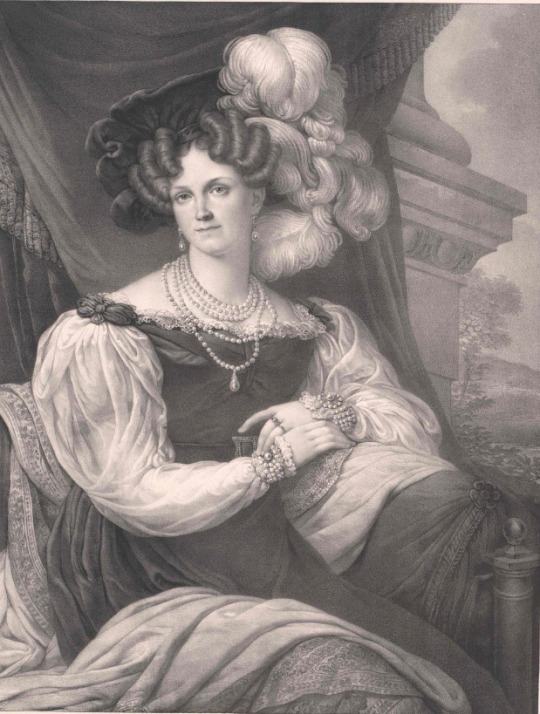
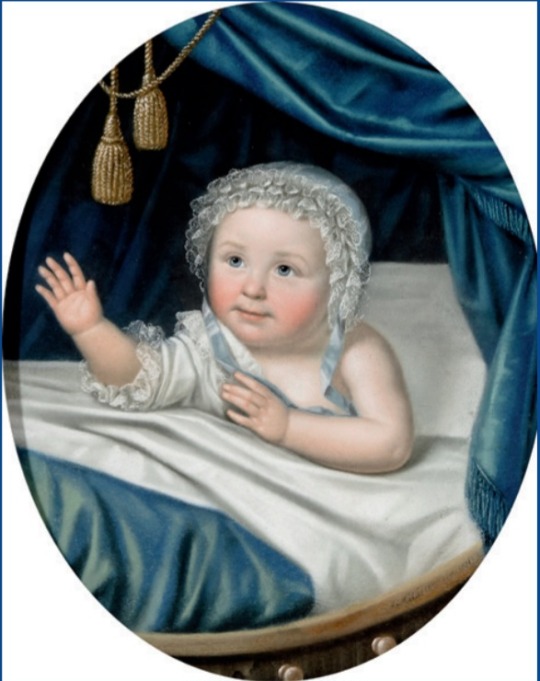
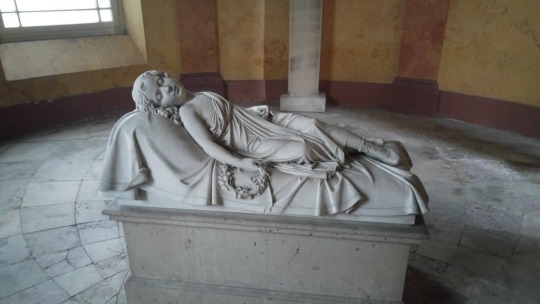
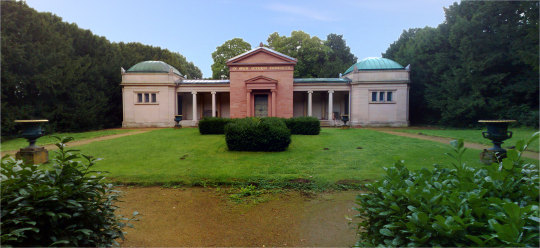
#grand ducal family of hesse-darmstadt#princess elisabeth of hesse-darmstadt (1821-1826)#Grand Duchess Wilhelmine of Hesse-Darmstadt#Princess Wilhelmine of Baden#Prinzessin Elisabeth (1821-1826)#Altes mausoleum#Old Mausoleum#Rosenhöhe#darmstadt#Too much Elizabeths
30 notes
·
View notes
Text
List of attendees to the service of Thanksgiving to the late King Constantine of Greece on 27th February 2024.
🇬🇧 Queen Camilla
🇬🇧 Princess Anne
🇬🇧 Sir Tim Laurence
🇬🇧 Princess Beatrice
🇬🇧 Edoardo Mapelli Mozzi
🇬🇧 Zara Tindall
🇬🇧 Mike Tindall
🇬🇧 Lady Sarah Chatto
🇬🇧 Daniel Chatto
🇬🇧 Prince Richard, The Duke of Gloucester
🇬🇧 Birgitte, The Duchess of Gloucester
🇬🇧 Prince Edward, The Duke of Kent
🇬🇧 George, The Earl of St. Andrews
🇬🇧 Sylvana, The Countess of St. Andrews
🇬🇧 Lady Helen Taylor
🇬🇧 Prince Michael of Kent
🇬🇧 Princess Michael of Kent
🇬🇧 Princess Alexandra of Kent
🇬🇧 James Ogilvy
🇬🇧 Julia Ogilvy
🇬🇧 Marina Ogilvy
🇬🇧 George, The Marquess of Milford Haven
🇬🇧 Clare, The Marchioness of Milford Haven
🇬🇧 Penny, The Countess Mountbatten of Burma
🇬🇧 Lady Alexandra Hooper
🇬🇧 Thomas Hooper
🇬🇧 India Hicks
🇬🇧 David Flint Wood
🇬🇧 Amory Wood-Hicks
🇬🇧 Prince Andrew, The Duke of York
🇬🇧 Sarah Ferguson
🇬🇷 Queen Anne-Marie
🇬🇷 Crown Prince Pavlos
🇬🇷 Crown Princess Marie-Chantal
🇬🇷 Prince Achileas-Andreas
🇬🇷 Prince Odysseas-Kimon
🇬🇷 Prince Aristides-Stavros
🇬🇷 Princess Maria-Olympia
🇬🇷 Prince Nikolaos
🇬🇷 Princess Tatiana
🇬🇷 Prince Philippos
🇬🇷 Princess Nina
🇬🇷 Princess Theodora
🇬🇷 Matthew Kumar
🇬🇷 Princess Alexia
🇬🇷 Carlos Morales
🇬🇷 Princess Irene
🇪🇸 King Juan Carlos
🇪🇸 Queen Sofia
🇪🇸 King Felipe
🇪🇸 Queen Letizia
🇪🇸 Infanta Elena
🇪🇸 Infanta Cristina
🇪🇸 Juan Urdangarian
🇩🇰 Princess Benedikte
🇩🇰 Prince Gustav
🇩🇰 Princess Carina of Sayn-Wittgenstein-Berleburg
🇩🇰 Princess Alexandra of Sayn-Wittgenstein-Berleburg, Countess Ahlefeldt-Laurvig-Bille
🇩🇰 Count Michael Ahlefeldt-Laurvig-Bille
🇯🇴 Queen Noor of Jordan
🇯🇴 Prince Hassan
🇯🇴 Princess Sarvath of Jordan
🇧🇬 Prince Kyril of Bulgaria
🇷🇸 Crown Prince Alexander of Serbia
🇷🇸 Crown Princess Katherine of Serbia
🇩🇪 Bernhard, Margrave of Baden
🇩🇪 Stephanie, Margravine of Baden
🇩🇪 Landgrave Donatus of Hesse
🇩🇪 Hereditary Prince Ernst August of Hanover
🇩🇪 Princess Saskia of Hohenlohe-Langeburg
Other notable attendees
Nicholas Soames (Conservative politician)
Rocco Forte (British Hotelier)
Hugh Cavendish, Baron Cavendish of Furness (Former member of the House of Lords)
Grania Mary Caulfield (wife of Baron Cavendish of Furness)
John Kerry (United States Special Presidential Envoy for Climate
Lady Susan Hussey (Lady-in-Waiting)
Sir Jackie Stewart (Racecar Driver and good family friend)
Alexandra von Fürstenberg (American Socialite)
Dax Miller (Alexandra von Fürstenbergs husband)
#i did this for the coronation so i thought i’d do this again#there will be more people who attended so if i missed anyone significant plz dm me#king constantine ii thanksgiving service#british royal family#greek royal family#danish royal family#spanish royal family
13 notes
·
View notes
Text
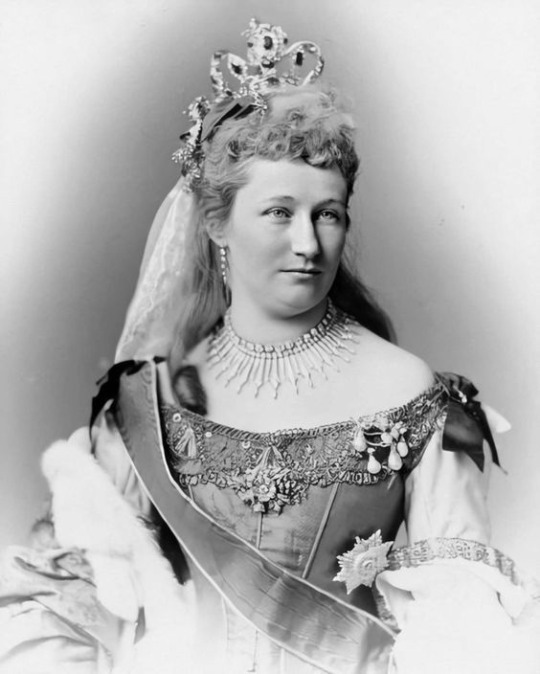
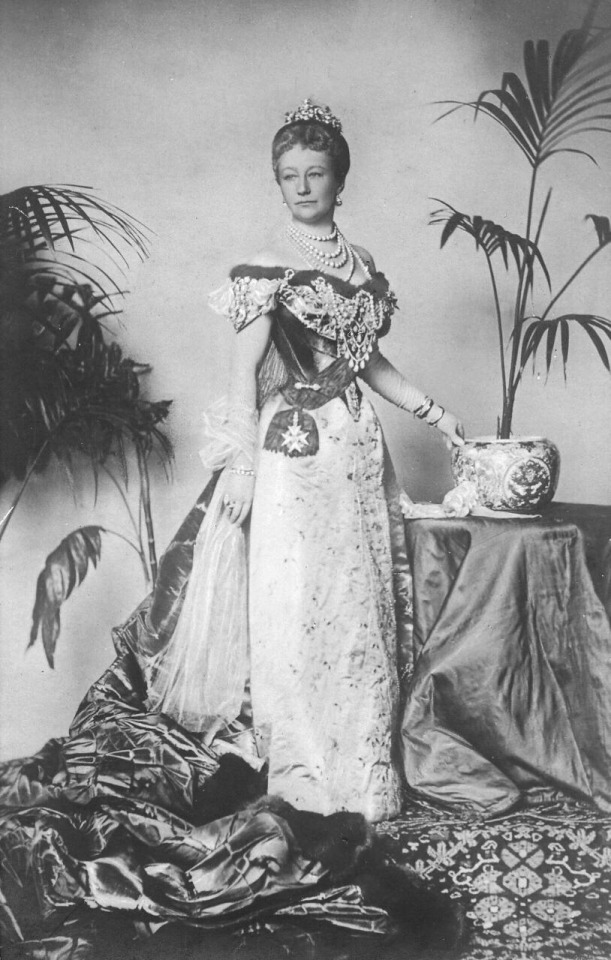
October 22 1858: The Birth of Kaiserin Augusta Victoria of Schleswig-Holstein
Augusta Victoria of Schleswig-Holstein was the eldest daughter of Frederick VIII, Duke of Schleswig-Holstein and Princess Adelheid of Hohenlohe-Lagenburg. Tragedy struck only a week after her birth when her elder brother died from illness. In 1860, her younger sister, Caroline Mathilda, was born. Who was regarded as prettier and a brighter personality than the chubby, serious, submissive Augusta Victoria. Soon Augusta’s mother would give birth to another boy, Gerhard, who died in infancy. Their next male heir and fifth child, Ernst Gunther, was a perfectly healthy baby boy. Augusta would have two other sisters, Louise Sophie in April 1866 and Feodora Adelaide in July 1874.
In her family, she was known affectionately as “Dona.” Augusta’s obedient nature was noted on early in her youth, even by her future mother-in-law Crown Princess Frederick. ‘It is strange how good some children are – and how little trouble they give,’ she wrote to her mother, Queen Victoria, when Augusta Victoria was nine years old. ‘Ada’s children are patterns of obedience, gentleness – the best of dispositions’. (1)
The thought of a match between Princess Augusta Victoria of Schleswig-Holstein and Prince Wilhelm of Prussia was contemplated ever since they were children, as noted by the prince (future Kaiser, ex-Kaiser) later in the future. But was never taken seriously until after the prince was rejected by Princess Elisabeth of Hesse and by Rhine. Perhaps, Wilhelm was seeking for a rebound in Dona and it was a success. As the couple married on the 27th of February 1881. The marriage has been regarded to be happy but not without struggle. As Wilhelm quickly grew bored at his new wife’s longing for a simple domestic lifestyle, having multiple affairs throughout the years. And in the beginning only saw Dona as a broodmare. It was only after an ear infection gone bad, where Augusta stayed by Wilhelm’s side throughout the duration of it did he start to see her in an adjusted light, but continued to be unfaithful to her.
She bore him seven children:
Wilhelm, German Crown Prince, Crown Prince of Prussia (1882-1951)
Prince Eitel Friedrich (1883-1942)
Prince Adalbert (1884-1948)
Prince August Wilhelm (1887-1949)
Prince Oskar (1888-1958)
Prince Joachim (1890-1920)
Princess Viktoria Louise of Prussia (1892-1980)
Her days as Empress, she was regarded by the court as a prudish, a stickler for rules who punished anyone for the simplest gesture she deemed to be “immoral.” She was deemed by many as unremarkable and plain with a gaudy and tacky sense of fashion. With Nicholas II remarking to his mother, the Dowager Empress. That she ‘did her best to be pleasant but looked awful in sumptuous gowns completely lacking in taste; in particular the hats she wore in the evening were frightful.’
Though as overbearing and a nuisance as she was in public life and a part of her private life, by some family members, such as Empress Frederick (with whom she had a very heated feud with and who Augusta enjoyed snubbing frequently) who wrote to her daughter, Sophie, she was characterized as: ‘very grand and stiff and cold and condescending at first, but became much nicer afterwards. Perhaps it was also partly shyness.’ and by her younger sister, Louise Sophie that when she was ‘not bowing to the will of her autocratic husband she was easy and indulgent’. “Her cousin Alice of Albany, who was sometimes mildly critical of her older relations, found her ‘most affable and kind’.”(1)
She was her husband’s biggest supporter throughout everything (for better and for worse) and was crushed when she was stripped of her titles as German Empress and Queen of Prussia after the war. Her health, which was already declining ever since the 1890s (causing her to miscarry twice) went down a rapid decline in the 1920s. And it had worsened when she had heard of the news of the death of her youngest son, Prince Joachim. She passed away on the 11th April 1921, in spite of her personal flaws, she was a beloved Empress by the German people and her popularity outshined her husband’s. Thousands lined up to see her off, where she would be buried at the Temple of Antiquities in the gardens near the New Palais in Postdam. Her husband, the ex Kaiser Wilhelm II was forbidden to cross into Germany to see his wife off for the final time.
Her room in Huis Doorn was soon turned into a shrine dedicated to the late Empress. With Wilhelm ordering for the room to regularly be cleaned with flowers and a cross draped over the bed. “Once a week, for the rest of his twenty years, he would retire there on his own, to go and mourn her memory.“ (1)
Wilhelm adhered to his late wife’s wishes for him to marry someone else when she was gone. When only a year later he would marry Princess Hermine of Reuss. He passed away in June of 1941, at age 82, 20 years after her passing.
Source : The Last German Empress
#monarchy#kaiser wilhelm ii#german empire#german monarchy#imperial germany#wilhelm ii#kaiserin augusta victoria#empress augusta victoria#royal birthdays#THIS TOOK ME AN HOUR😭#and her bday is about to end in 8 minutes#i was hella procrastinating lmao#happy birthday to Dona ig#german royalty#german royal family
48 notes
·
View notes
Text
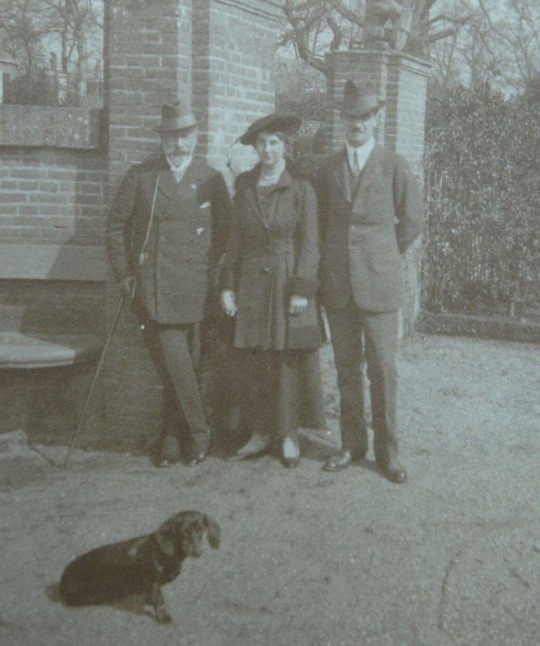
Kaiser Wilhelm II alongside daughter Princess Victoria Louise & son in law Prince Ernst August, Duke of Brunswick ❦
1 note
·
View note
Text
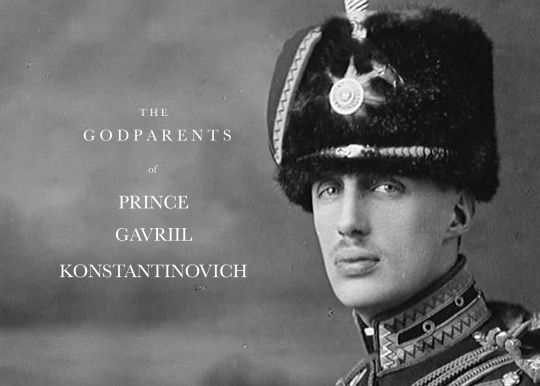


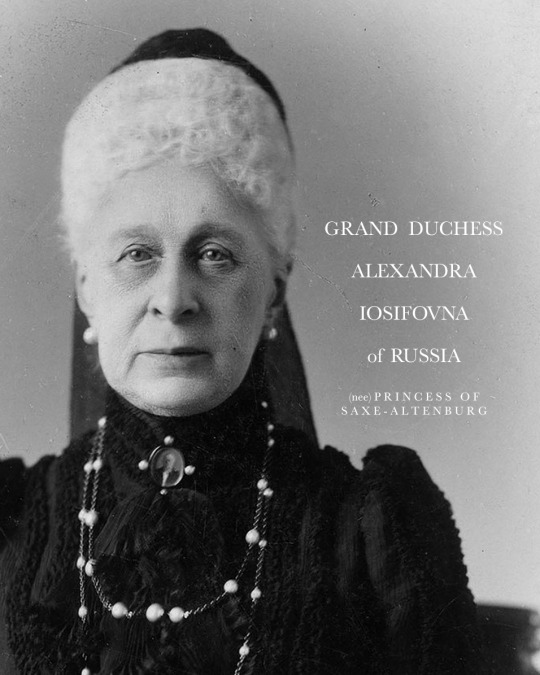
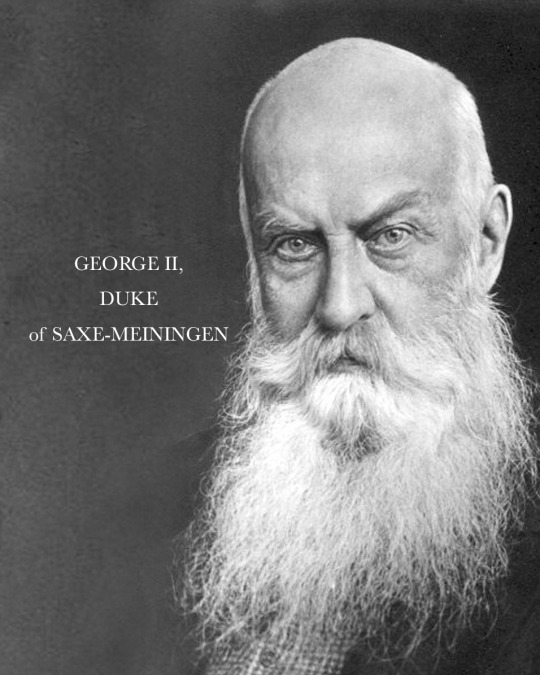
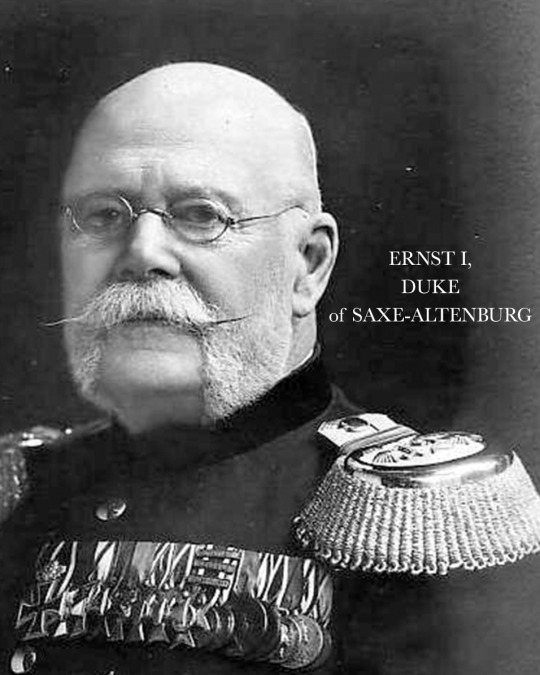
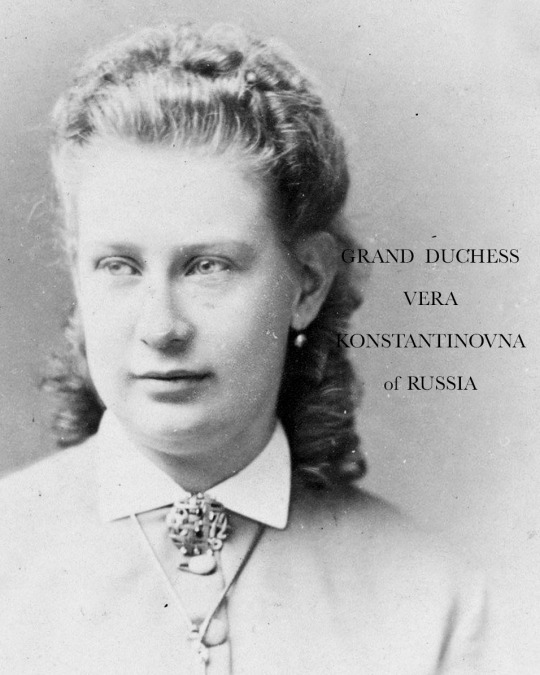
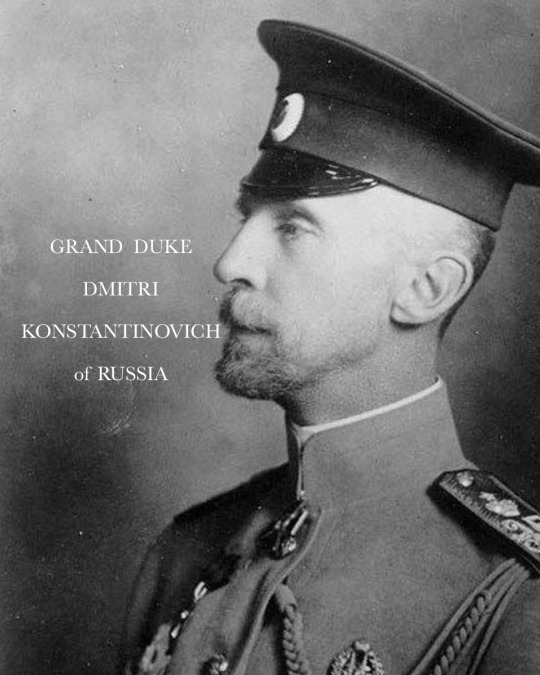
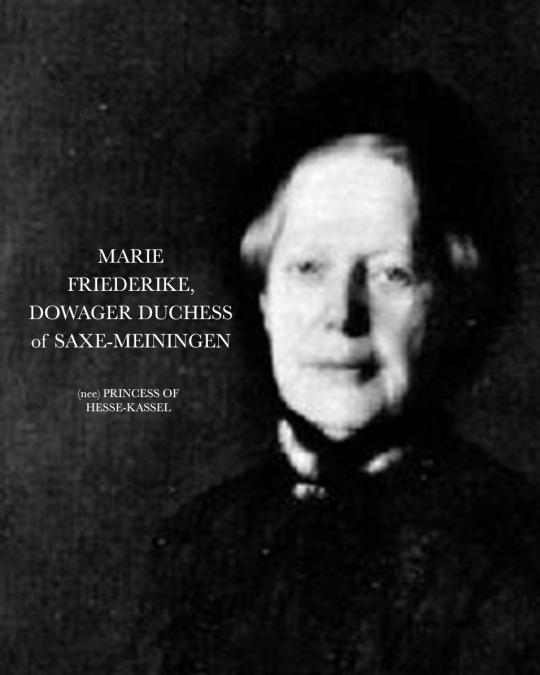
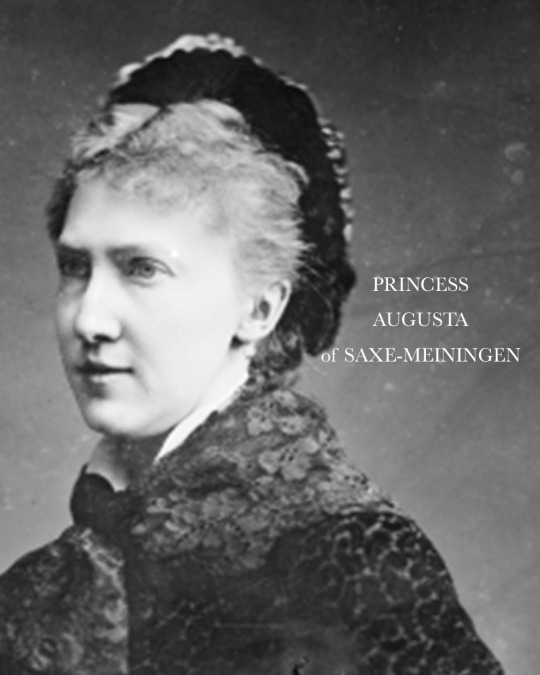
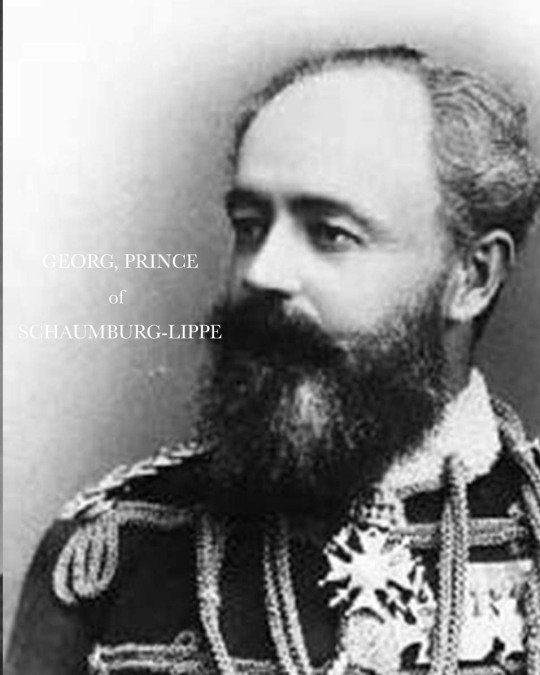
GODPARENTS OF PRINCE GAVRIIL KONSTANTINOVICH
Prince Gavriil Konstantinovich was born on 15 July 1887 in the Grand Bedroom of Empress Maria Feodorovna at Pavlovsk Palace, Saint Petersburg. The second son of Grand Duke Konstantin Konstantinovich of Russia and his German-born wife Grand Duchess Elizabeth Mavrikievna, he was christened on 8 August at 1:30 pm at a private church of Pavlovsk. His godparents were:
ALEXANDER III, EMPEROR OF RUSSIA - his father’s first cousin was named as one of his many godparents. He was highly reactionary in domestic affairs and reversed some of the liberal reforms of his father, Alexander II. He was most likely present at his young cousin’s christening.
GEORGE I, KING OF GREECE - his uncle, the husband of Queen Olga Konstantinovna, was one of his godparents. Born a Danish prince, he was elected king by the Greek National Assembly, when he was only 17. His reign of almost 50 years (the longest in modern Greek history) was characterized by territorial gains as Greece established its place in pre–World War I Europe.
GRAND DUCHESS ALEXANDRA IOSIFOVNA OF RUSSIA - his paternal grandmother, born a German princess, was listed as one of his godparents. Married to Grand Duke Konstantin Nikolaevich of Russia in 1848, she was considered a beautiful woman, but plagued by insecurity. Within the family, she was later known to be a formidable character.
GEORGE II, DUKE OF SAXE-MEININGEN - his maternal great-uncle, was the penultimate Duke of Saxe-Meiningen, reigning from 1866 to 1914. He was likely present, having been named as one of his young nephew's godparents.
ERNST I, DUKE OF SAXE-ALTENBURG - a paternal great-uncle named as a godparent of the young prince, was the reigning Duke of Saxe-Altenburg from 1853 until 1908. He was of a retiring disposition and he took little active part in running the country, of which he ruled for fifty-five years.
GRAND DUCHESS VERA KONSTANTINOVNA OF RUSSIA - one of his paternal aunt, Vera was known in royal circles as an eccentric both in appearance and behaviour. She was named as one of Gabriel's godparents, and was present at the christening. Although she kept in touch with her Romanov relatives, visiting Russia many times, she identified more closely with her adopted country, Württemberg.
GRAND DUKE DMITRI KONSTANTINOVICH OF RUSSIA - his paternal uncle, and his favourite, was also one of his godparents. He followed a military career, and was religious. He never married, and was one of several Romanov relatives executed by a firing squad at the walls of Peter and Paul Fortress during the Russian Civil War.
MARIE FRIEDRIKE, DOWAGER DUCHESS OF SAXE-MEININGEN - his maternal great-grandmother was one of his godparents. Born a Princess of Hesse-Kassel, she married the Duke of Saxe-Meiningen, with whom two children (seventeen years apart) were born.
PRINCESS AUGUSTA OF SAXE-MEININGEN - his maternal grandmother was absent at her grandson's christening, of whom she was named as one of his godparents. In 1862, she married Prince Moritz of Saxe-Altenburg, and bore him five children.
GEORG, PRINCE OF SCHAUMBURG-LIPPE - the husband of his maternal aunt, was also absent at the young prince's christening but was named as one of his numerous godparents. He ruled the small Principality of Schaumburg-Lippe within the German Empire from 1893 to 1911.
Source
15 notes
·
View notes
Text

Friedrich Wilhelm Victor August Ernst, Crown Prince of Prussia
German vintage postcard
#photography#vintage#ephemera#sepia#august ernst#victor#carte postale#postkarte#ernst#crown prince#friedrich#prussia#briefkaart#tarjeta#prince#postal#crown#friedrich wilhelm victor#historic#august#german#prussia german#postkaart#photo#wilhelm#ansichtskarte#postcard
6 notes
·
View notes
Text
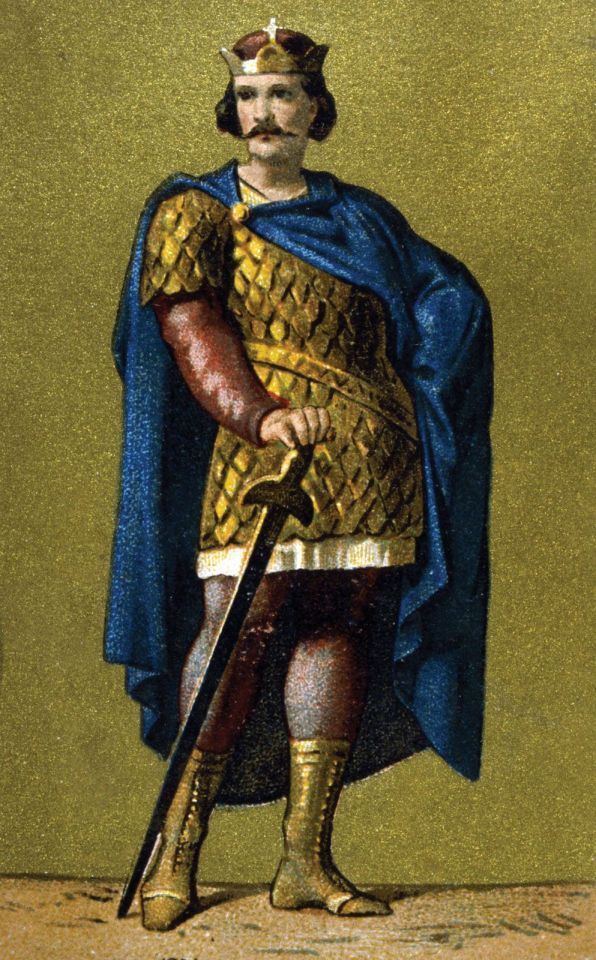
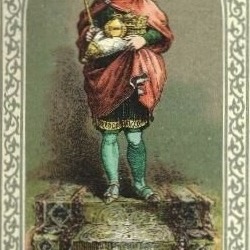
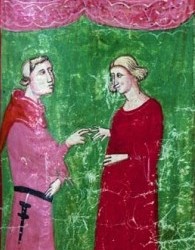
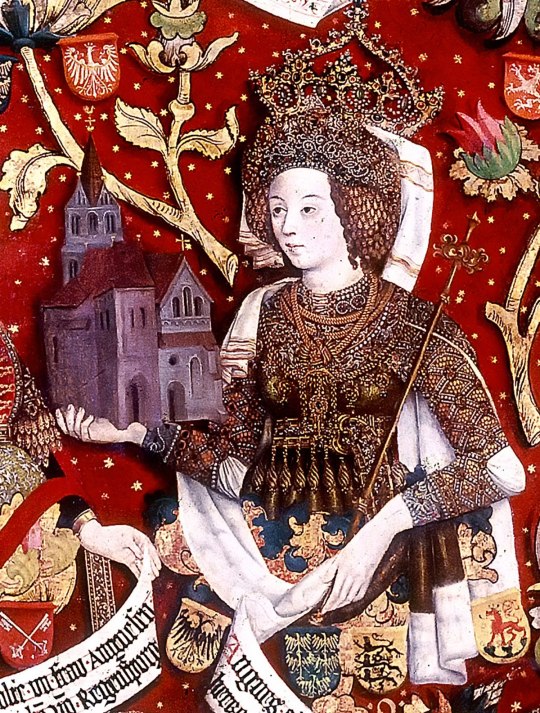
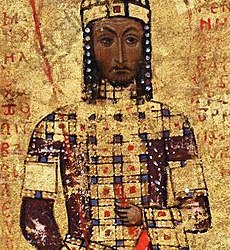
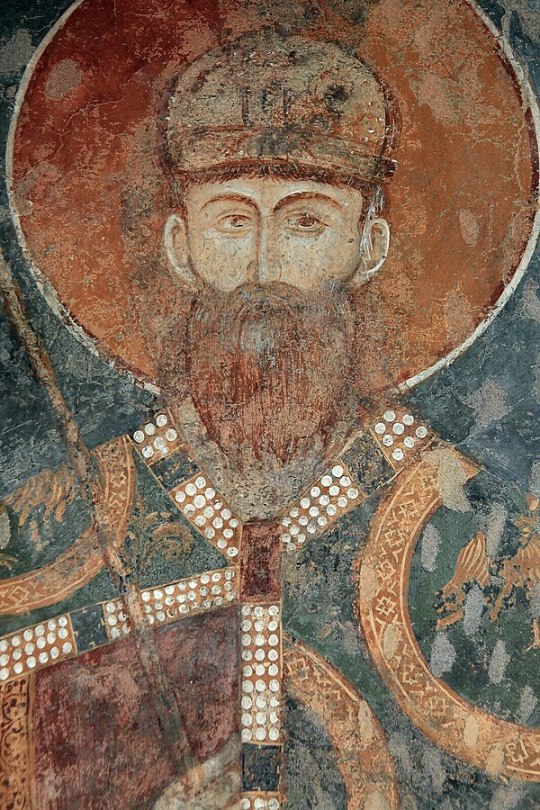
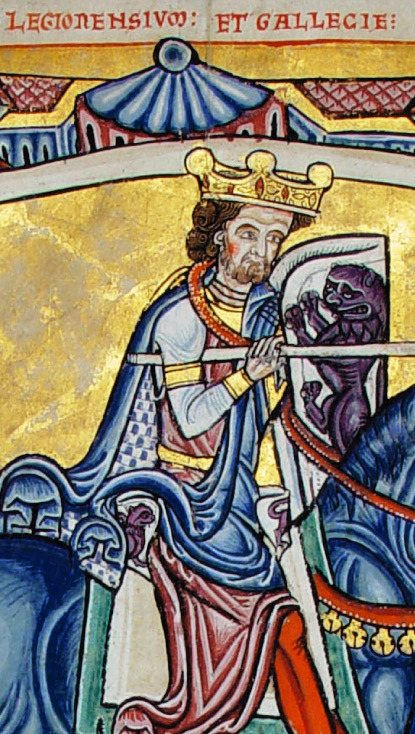
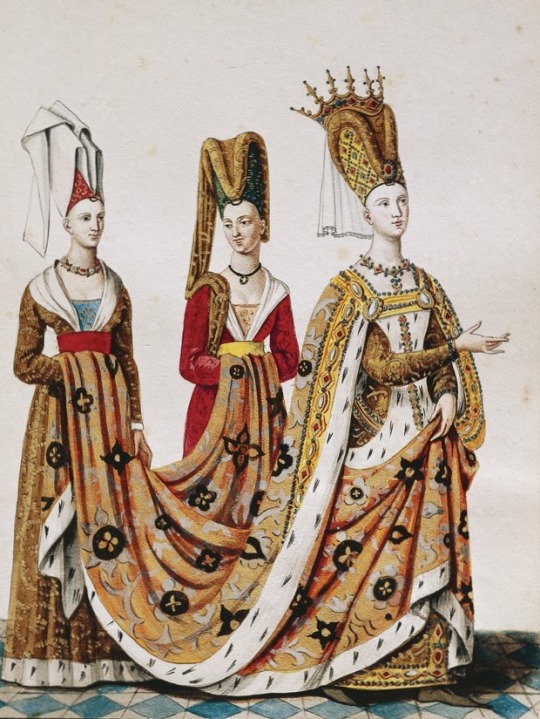
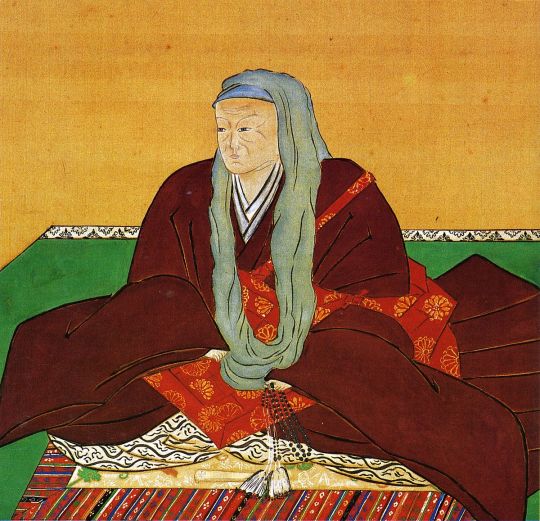
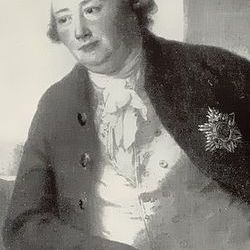
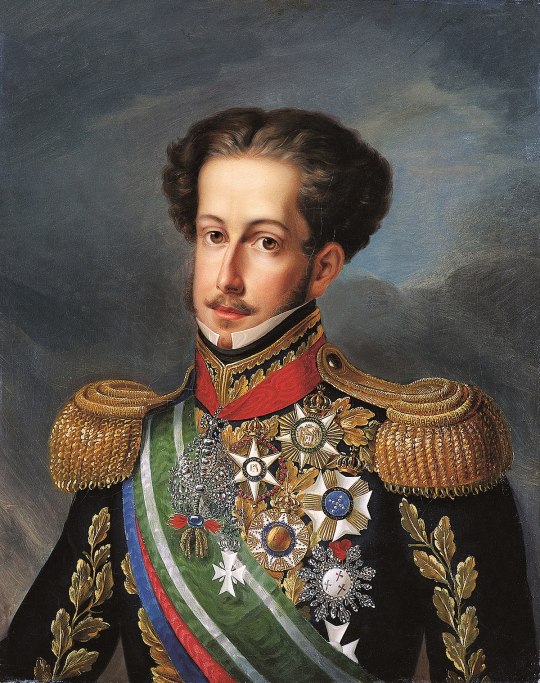
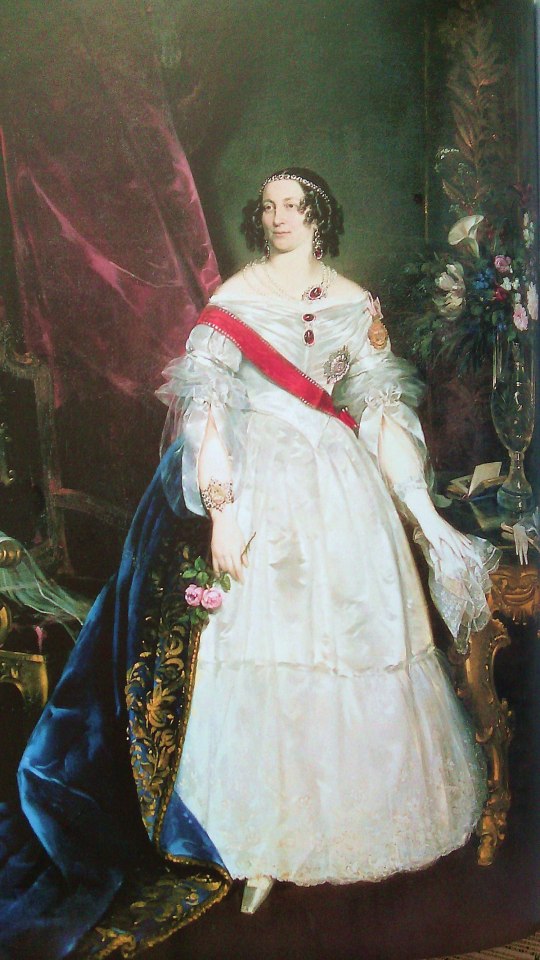
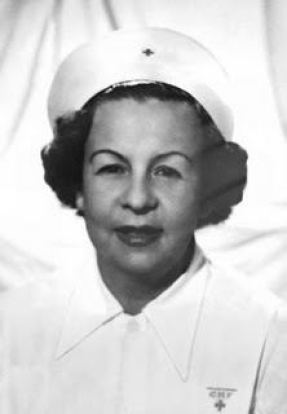
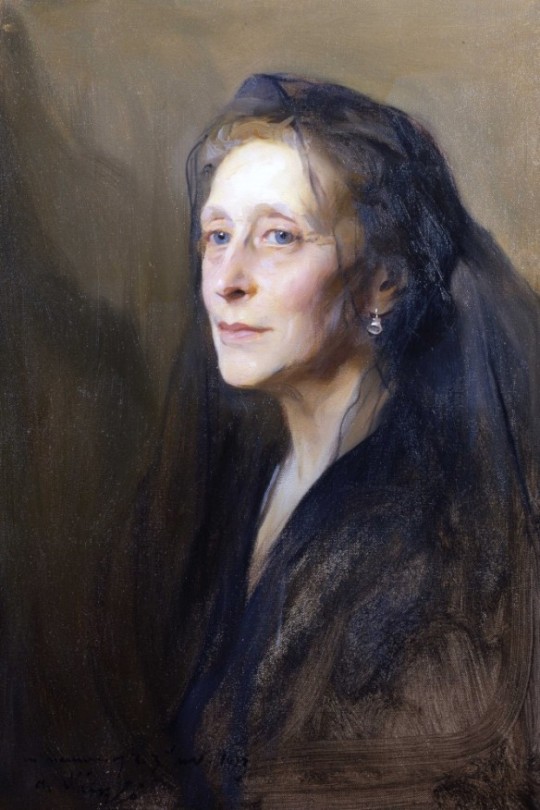
Royal Deaths, 24th September.
768 - Pippin III, the short, King of France.
911 - Louis the child, last Carolingian German King.
1120 - Welf II, Duke of Bavaria.
1143 - Agnes of Germany, daughter of Henry IV, Holy Roman Emperor.
1180 - Manuel I Komnenos, Emperor of the Byzantine Empire.
1228 - Saint Stefan Nemanjic, Grand Prince of Serbia
1230 - Alfonso IX, King of León and Galicia.
1435 - Isabeau of Bavaria, Queen and wife of Charles VI of France, who ruled during her husband's periods of insanity.
1732 - Emperor Reigen, 112th Emperor of Japan.
1812 - Friedrich Karl August, Prince of Waldeck and Pyrmont.
1834 - Pedro I, Emperor of Brazil and King of Portugal.
1860 - Marie of Württemberg, Duchess of Saxe-Coburg and Gotha, second wife and niece of Ernst I, Duke of Saxe-Coburg and Gotha.
1891 - Alexandra of Greece and Denmark, Grand Duchess Alexandra Georgievna of Russia, daughter of King George I of Greece, wife of Grand Duke Paul Alexandrovich of Russia.
1930 - Marie Juliette Louvet, mistress of Prince Louis Il of Monaco, mother of his only child Princess Charlotte of Monaco.
1950 - Princess Victoria of Hesse and by Rhine, Marchioness of Milford Haven, granddaughter of Queen Victoria.
3 notes
·
View notes
Text
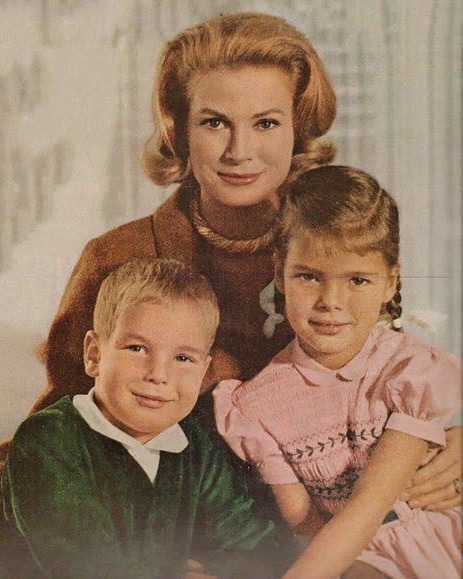



Happy 67th birthday to Princess Caroline of Monaco!
Born on January 23rd 1957, Caroline Louise Marguerite is the eldest child of Prince Rainier Ill of Monaco and Grace Kelly.
She's a princess of Monaco by birth, and the Princess of Hanover by marriage to Prince Ernst August.
Caroline has four children; Andrea Casiraghi (39), Charlotte Casiraghi (37) and Pierre Casiraghi (36) - children of her second husband Stefano Casiraghi - and Princess Alexandra of Hanover (24) - from her third marriage to Prince Ernst August.
53 notes
·
View notes
Note
Hello duchess! I’m new to royal watch and I just found out that queen Margareth of Denmark sister is also a queen! Is royals marrying other royals common nowadays or do you think we won’t see royals marrying royals for a long time now?
My name's Jessica :) It is not as common as it used to be. Most of the inter-royal marriages are amongst those who are over 60 or they're deposed royals whose titles don't mean anything (you regularly see the pretender to some tiny German throne marrying the pretender to a throne of an Eastern European nation that doesn't exist anymore etc). Some examples (not an exhaustive list before people start with the THIS PERSON IS ANOTHER EXAMPLE nonsense):
Anne Marie is Queen Margrethe of Denmark's sister and married King Constantine of Greece.
Constantine's sister Sofia married King Juan Carlos of Spain
Princess Caroline of Monaco is still legally married to Prince Ernst August of Hanover (they live apart).
Princess Haya of Jordan - half sister of the King of Jordan - recently divorced Sheih Mohammed bin Rashid Al Maktoum who is the Ruler of Dubai
Princess Margaretha is the sister of Grand Duke Henri of Luxembourg and is married to the brother of Prince Hans-Adam of Liechtenstein
Lots of royals married into German or Austrian houses including Princess Birgitta who is the sister of the King of Sweden, Princess Astrid who is the sister of the King of Belgium, Margrethe and Sofia's other sister Princess Benedikte, Grand Duke Henri of Luxembourg's other sister Marie-Astrid etc, Prince Alois of Liechtenstein who is the heir and married a Bavarian royal.
It's not the case that royals all got some sort of memo saying they couldn't marry each other any more. It was just a natural thing. They no longer had to marry each other because countries didn't forge political alliances that way anymore. They had all been fighting each other during the wars so it was safer to marry someone from your own country. And then over time they started to go to ordinary schools or go to university with normal people or go clubbing and societal attitudes shifted and so they met different kinds of people than their ancestors would have met. So I don't think for a second that William and Kate or Victoria and Daniel are whispering into their kids' ears at night trying to convince them not to marry a royal, but whereas their ancestors might have had a pool of 10 eligible candidates to draw from because they only went to debutante balls and hunting trips with other royals, now they have access to essentially an unlimited number of people and so the probability has dropped that it will be another member of this comparatively small social class
18 notes
·
View notes